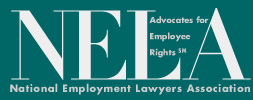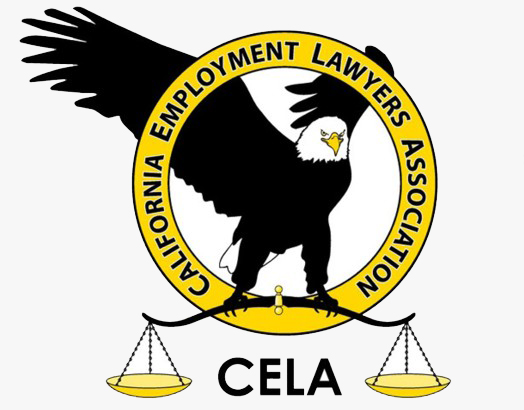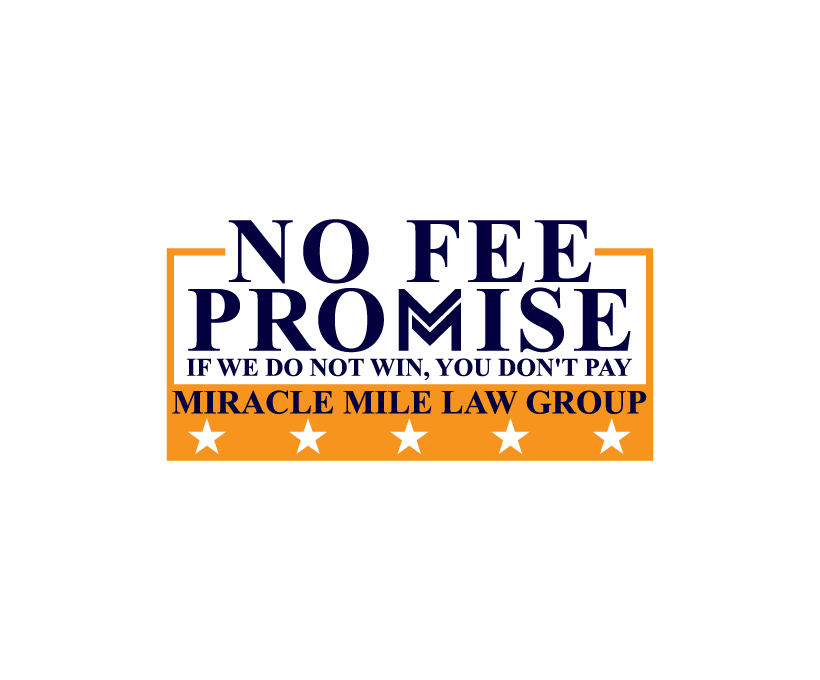Gender Discrimination
Miracle Mile Law Group stands as a beacon of hope for employees subjected to gender discrimination in the workplace. In a world ever-evolving in its perspectives and values, gender equality remains a fundamental right that every employee deserves.
Gender Discrimination in California's Work Environment
In California, gender discrimination is strictly prohibited in employment practices under both federal and state laws, such as the federal Title VII of the Civil Rights Act of 1964 and the California Fair Employment and Housing Act (FEHA). These laws prohibit employers from treating employees or job applicants unfavorably due to their gender or because of their connection with an organization or group generally associated with people of a certain gender.
Gender Discrimination in California's Work Environment

In California, gender discrimination is strictly prohibited in employment practices under both federal and state laws, such as the federal Title VII of the Civil Rights Act of 1964 and the California Fair Employment and Housing Act (FEHA). These laws prohibit employers from treating employees or job applicants unfavorably due to their gender or because of their connection with an organization or group generally associated with people of a certain gender.
The Facts of Gender Discrimination
- Different Forms: Discrimination might manifest in various ways – from hiring and firing decisions, wage discrepancies, to other terms and conditions of employment.
- Sexual Harassment: Often interlinked, sexual harassment is a form of gender discrimination. It encompasses unwelcome sexual advances, requests for sexual favors, and other verbal or physical conduct of a sexual nature.
- Pregnancy Discrimination: Treating a woman unfavorably due to pregnancy, childbirth, or related conditions falls under gender discrimination in California.
- Retaliation: Employees who voice out against gender discrimination or assist in investigations or lawsuits related to such claims are protected against retaliatory actions.
Proving gender discrimination in the workplace can be challenging but is feasible with a systematic approach. Here are the general steps and considerations for building a strong gender discrimination case:
- Direct Evidence: This is the most compelling evidence but is rare. It includes overt statements, written documents, or actions that directly point to gender-based discrimination. An example might be a manager stating they don’t promote women because they believe men are more reliable.
- Comparative Evidence: Demonstrate a pattern where one gender is consistently favored over the other. For instance, if men are consistently promoted over equally or more qualified women, this may support a gender discrimination claim.
- Disparate Treatment: This occurs when one gender is treated differently than the other without a valid reason. Documentation of situations where opposite genders were treated differently in similar circumstances is pivotal.
- Statistical Evidence: Large discrepancies in gender representation, particularly in leadership roles or in wage disparities across the company, can serve as evidence, especially when the statistics diverge significantly from industry norms.
- Retaliation: If you’ve reported or opposed discriminatory practices and subsequently faced negative employment actions (like demotion, termination, or undesirable reassignments), this might strengthen your claim.
- Company Culture and History: A history of gender-related complaints or a workplace culture that perpetuates gender stereotypes can be indicative of systemic gender discrimination.
- Statements and Testimonies: Coworkers’ testimonies, especially those who’ve witnessed or experienced discrimination, can be powerful. Collect statements or affidavits that corroborate your claims.
- Documentation: Keep detailed records of any discriminatory incidents, including dates, times, locations, people involved, and witnesses. Emails, text messages, performance reviews, and other formal communications can be vital evidence.
- Violation of Company Policies: If an employer violates its own anti-discrimination policies or doesn’t enforce them, this can be used as evidence.
- Pretextual Reasoning: If an employer provides a reason for an adverse employment action that seems false or fabricated, it may be a cover for discriminatory intent. Demonstrating that the given reason is pretextual can be instrumental in a discrimination claim.
- Expert Testimonies: Psychologists, industry experts, or human resource professionals can provide expert opinions on discriminatory practices, behaviors, or patterns observed in your workplace.
- Consistency in Employee Testimonies: Multiple employees providing consistent accounts of gender-based treatment can significantly bolster a case.
Given the intricacies involved in proving gender discrimination, seeking legal counsel is essential. An experienced attorney can guide you through the process, ensuring the collection of pertinent evidence and building a compelling case.
California and Federal Laws on Gender Discrimination
- In California, gender discrimination lawsuits lean heavily on a combination of robust state and federal laws. At the forefront on the state level is the California Fair Employment and Housing Act (FEHA). This comprehensive legislation forbids employers from discriminating against employees or job applicants based on gender, gender identity, gender expression, or sexual orientation. It offers extensive protections that sometimes surpass those at the federal level. Speaking of federal laws, Title VII of the Civil Rights Act of 1964 is pivotal. Title VII prohibits employers from discriminating against any individual with respect to employment terms, conditions, or privileges because of their gender. Furthermore, the Equal Pay Act of 1963 mandates equal pay for equal work regardless of gender. Lastly, the Pregnancy Discrimination Act (an amendment to Title VII) ensures that women aren’t discriminated against based on pregnancy, childbirth, or related conditions. When representing employees in gender discrimination lawsuits in California, attorneys frequently interweave provisions from both state and federal statutes to craft the most compelling case possible against the employer.
Services Offered by Miracle Mile Law Group
- Personalized Assessment: Our dedicated attorneys dive deep into your unique experience, offering a comprehensive understanding of your rights and potential routes to justice.
- Assertive Representation: We take pride in our relentless pursuit of justice, ensuring that the imbalances and prejudices of gender discrimination are righted.
- Guided Navigation: The labyrinth of legal provisions can be daunting. With us by your side, you’re assured clarity, confidence, and a voice that echoes with conviction.
Calculating Compensation for Gender Discrimination
Gender discrimination not only wounds an individual’s dignity but also leads to tangible losses. Victims might be eligible for back pay, benefits, possible promotions, and even reinstatement. Emotional pain, suffering, and punitive damages may also be pursued depending on the severity of the employer’s conduct.
Evaluating Your Gender Discrimination Claim
When you’re clouded with doubt, feeling marginalized, and wondering if your experiences warrant legal redress, Miracle Mile Law Group offers the clarity you need. We examine your workplace conditions, compare it with protective statutes, and guide you towards the realization of your rights.
Gender Discrimination occurs when an employer subjects an employee to some adverse employment action, or treats the employee less favorably than other employees because of that person’s Gender. This is true whether the employee is male or female.
In order to raise an employer’s actions to the level of being unlawful or illegal, their conduct must involve treatment that negatively affects the “terms or conditions of employment.”
Gender discrimination is often times difficult to prove as your employer is unlikely to explicitly say that the adverse employment action was due to gender.
That is why it is so important to hire an attorney to represent you because a lawyer is keenly trained to identify the subtle conduct of your employer that rises to the level of Gender Discrimination. But there are somethings you can do to better prove your case. These include:
- Create a detailed written record with anything that may suggest Gender Discrimination, such as comments or conduct by your boss
- Gather up all your performance and personnel record
- Keep and print all e-mails and correspondence between your bosses or between any of your other colleague
Gender discrimination is not a one-size-fits-all event. The different forms of gender discrimination include:
HIRING: this can occur when you are a highly qualified female who is applying for a position in a certain company but the company decides not to hire you because they only want a man in that job.
CONDITION OF EMPLOYMENT: this can occur when you are applying for an office job that states you must be able to lift at least 85 pounds. It is unlikely that you need to be able to lift 85 pounds for an office job and therefore this may be a coy to discriminate against women because men are more likely to be able to lift heavy weights.
FIRING: the company you work for tells you they are letting go of 100 out of the 200 employees who work there. However, of the 100 people let go, 80 of them are women. The may tend to show a disposition towards gender discrimination.
PROMOTION: you’ve been working for a company for over 20 years, gaining a vast amount of experience along the way. However, every time a promotion comes up you are passed over for a man with way less experience and credentials. This also may rise to the level of Gender Discrimination if other facts can show that the reason for the pass ups were due to gender.
PAY: you’ve been working at a company in a certain role and you finally get promoted. You then find out that another employee is hired for the same duties and responsibilities but he is getting paid way more than you.
BENEFITS: your company has a policy of providing extended leave for disabilities that occur during work but when you became pregnant you were not afforded the same extended leave opportunities. This situation may rise to the level of Pregnancy Discrimination, which is also a form of Gender Discrimination.
SEXUAL HARASSMENT: the law classifies sexual harassment as a form of gender discrimination, so if you believe that you are working in a hostile work environment or are a victim of Quid Pro Quo Sexual Harassment, you may have suffered Gender Discrimination.
GENDER IDENTITY: you are a male who is in the process of transitioning to a female through hormone therapy. You notify your boss of the procedure and shortly thereafter they fire you. Because of their actions in firing you, you may have a case against your employer.
- We also recommend creating what we like to call a Work Diary. Along with documenting your efforts, keeping a daily work journal helps you realize all the facts that may support your gender discrimination case. Download the simple and easy-to-use Work Diary we created here at Miracle Mile Law Group to track and record all instances of discrimination in the workplace. By writing things down, you will be able to come back to certain events or incidents you may have forgotten at a later date. This allows you to be able to come up with conclusions you may not have necessarily met if everything wasn’t laid out in front of you.
-
- Both state and federal law provide protections against wage discrimination on the basis of gender. The Equal Pay Act, enacted in 1963, prohibits unfair payment of wages on the basis of gender.On the other hand, the California Fair Pay Act, enacted in 2016, expands the protections provided by the Equal Pay Act. Under the California Pay Act, employers are prohibited from paying any of their employees less than employees of the opposite sex for “substantially similar work.” Employers have the duty show that the difference in pay is based on:
- A seniority system
- A merit system
- A system that that measures earnings by quantity or quality of production
- A bonafide factor other than sex
In fact, employers cannot use prior salary to justify a difference in pay based on gender. Employers are prohibited from asking you what your salary was at your previous job.
- Both state and federal law provide protections against wage discrimination on the basis of gender. The Equal Pay Act, enacted in 1963, prohibits unfair payment of wages on the basis of gender.On the other hand, the California Fair Pay Act, enacted in 2016, expands the protections provided by the Equal Pay Act. Under the California Pay Act, employers are prohibited from paying any of their employees less than employees of the opposite sex for “substantially similar work.” Employers have the duty show that the difference in pay is based on:
- EEOC v. Mach Mining, LLC: A large corporate mining company and their affiliates was sued by a class of females over hiring practices which effectively excluded women from working in the underground mines and in other coal production position. There was absolutely no reason why women should have been excluded from working in these positions and it was clear that the “frat” like culture was rampant in the company. The case was eventually settled for $4,250,000.U.S. EEOC v. CSX Transportation, Inc.: A railroad transportation company conducted isokinetic strength testing as a requirement for workers to be hired for various jobs. The EEOC contended that these strength tests created an unlawful discriminatory impact for female workers seeking jobs as conductors and material handlers/clerks. The company settled the case for $3,200,000.Smith v. Rosebud Farm Inc. : A male grocery store butcher sued his employer for Gender Discrimination alleging his male colleagues sexually groped and insulted him for more than four years. He claimed that his male, meat-counter colleagues would grab his genitals and buttocks. They would also repeatedly mime oral and anal sex, along with other comments and gestures. His colleagues also allegedly made inappropriate, racially charged comments. Smith’s supervisor ignored his complaints. This case was tried to verdict with the jury awarding the man $2,400,000 in damages.EEOC v. Mavis Discount Tire, Inc., et al.: A discount tire company was sued by a large class of women for Gender Discrimination when the company engaged in a pattern or practice of refusing to hire women for its field positions – managers, assistant managers, mechanics, and tire technicians – in the company’s over 140 stores throughout Connecticut, Massachusetts, New York, and Pennsylvania. The case was eventually settled for $2,100,000. EEOC v. Cintas Corp.: Cintas, one of the largest occupational safety compliance companies in the nation, was sued by a class of employee because they failed to hire these women for the position of service sales representative (SSR) throughout Michigan from 1999 until March 31, 2005. After close research it was found that women were statistically denied the chance to fill the positions in significant numbers. The case eventually settled for $1,500,000.EOC v. Estée Lauder: Estée Lauder, a company renowned for their dominance in the cosmetic industry, was sued by a class of males for Gender Discrimination. The class contends that the company provided them, as new fathers, less paid leave to bond with a newborn than it provided new mothers. It was alleged that the company unlawfully denied new fathers return-to-work benefits provided to new mothers, such as temporary modified work schedules, to ease the transition to work after the arrival of a new child and exhaustion of paid parental leave. Estée Lauder settled the case for $1,100,000.OC v. DDZ, Inc., dba DDZ CA, Inc.: A printing company was sued for Gender Discrimination because they allegedly failed to hire woman applicants for certain job and did so deliberately for a period of two years. Also the women who did work there were already facing a hostile work environment. The company settled with the EEOC for an amount totaling $625,400.EEOC v. Nestle Waters North America: Nestle Water Company, the world’s largest water bottling and servicing company, was sued by an employee for Gender Discrimination when they failed to hire her for a position but instead hired a male for the same position. Not only was the male less qualified than the female employee, he did not even meet the requirements for the job set by Nestle. Nestle settled with the EEOC for $300,000, but it goes to show that no matter how big of a company you are, you cannot escape justice.




